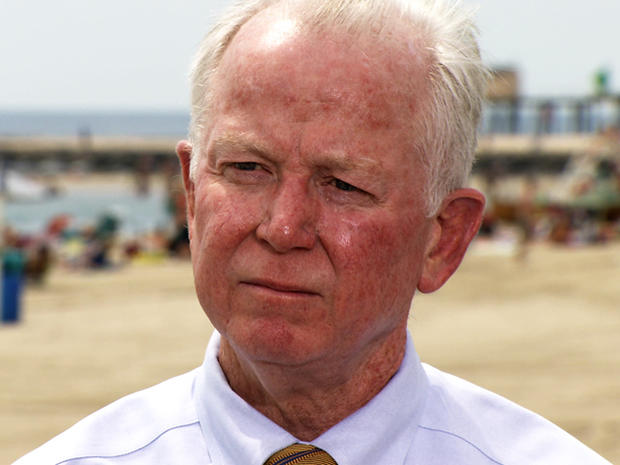Dune fortification still controversial despite Sandy destruction
(CBS News) The only thing standing between Adi Quinn's house in Lido Beach, N.Y., and surge from Superstorm Sandy was two 25-foot-high sand dunes.
"That's a natural barrier," she says. "A good, thick dune. We lost the primary dune. By the time that was lost, we still had the secondary dune to keep us safe."
Asked what her house would look like if the dunes weren't there when Sandy hit, Quinn says, "It would not be here."
Construction of these dunes began in the 1970s. The town enlarged the natural dunes and strengthened them over the years with plants.
"The roots are like cement," Quinn says. "They hold the sand in place. We have poison ivy, we have beach grass -- they're wonderful dune plants."
The high and wide dunes absorb and disperse the energy from pounding surf. But some shore towns have avoided building dunes. Retired police detective Brendan Finn lives less than three miles from Adi Quinn in Long Beach, N.Y. Sandy pushed water over the beach down his street and around his home.
"The water just kept coming up, step by step till it got to right here and started coming in my door," he says.
Study: Superstorm Sandy's "freaky" path less likely with global warming
Hurricane Sandy Rebuilding Task Force: More and worse floods are coming, so prepare
NYC beach burned during Sandy struggles to rebuild
Complete Coverage: Superstorm Sandy
Long Beach refused to build dunes because the people who lived there were concerned about obstructed views and the $7 million price tag. Sandy ended up causing $200 million in damage.
But some towns still reject dune building.
"With our active boardwalk and the number of people that come down here all during the year, I think a dune is an unnecessary element," says Charles Rooney, town engineer in Avon-by-the-Sea, N.J.
Watch: Court rules against dune-blocked homeowners, below.
Although Sandy ripped apart Avon's boardwalk, Rooney says dunes offer no guarantees.
"The tide surge associated with that storm consumed the beach and would have consumed the dune," he says. "Once you construct the dune, it is protected by the state. Then as it starts to grow or migrate and get taller in height, there are limitations as to what you can do to change that."
But Brendan Finn is a convert.
"I didn't feel like we needed a dune here," he says. "I know we need them now, but I didn't know it then."
And so is Long Beach. They hope work on dune fortification will begin by the end of 2014.



